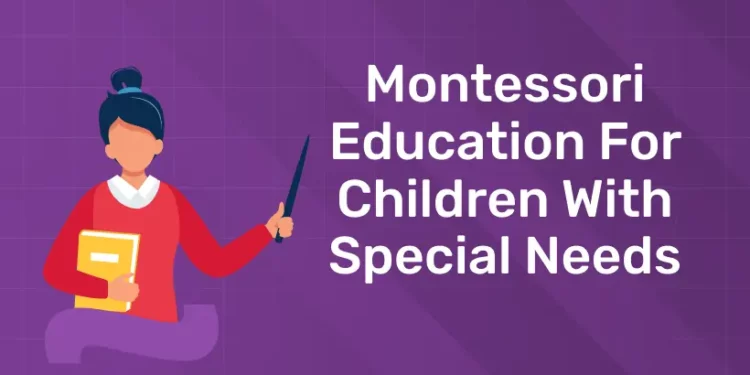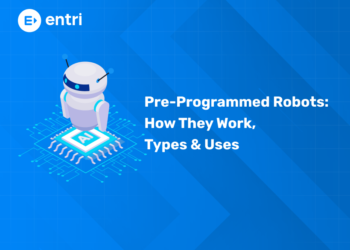Table of Contents
Children of all skill levels and learning preferences can find a loving, encouraging atmosphere in the Montessori Method of education. Children with physical disabilities, learning problems in reading, writing, spelling, and/or math, ADHD, and autism spectrum disorders are all included in this category of children with disabilities and neurodiversities. For three years, kids attend multi-age courses taught by the same teacher. For both adults and children, this ongoing connection creates a secure, predictable atmosphere. Instead of adjusting to new people and habits every year, students can focus on their studies. In this article we’ll see, the Montessori approach for students with special needs.
Start your journey to becoming a certified Montessori teacher! Get free Demo Here!
Montessori Education for Children With Special Needs
Talentedness
For gifted pupils, Montessori schools are comparable to other educational options. They may be a perfect choice if they can provide customized programs that address a child’s learning needs. They won’t likely fit in well if they can’t accomplish this. Therefore, it’s critical to review the policies of any Montessori school to determine whether or not it can accommodate your talented child’s unique learning demands.
Learning Challenges
Numerous kids suffer from learning difficulties (LDs). For example, many students receive a diagnosis of dyslexia, frequently referred to as a “reading disorder,” or attention deficit disorder (ADD). Other pupils have been diagnosed with dysphasia, dysgraphia, or dyscalculia. Students with LDs do well in many Montessori institutions. They can accommodate a wide range of kids’ learning requirements since they are adaptable. Additionally, they let students work at their own pace, which is advantageous for people with learning disabilities.
Developmental Challenges
Many students are identified with developmental difficulties, including intellectual disability, Asperger’s syndrome, Down syndrome, and autism spectrum disorders (ASD). Students diagnosed with ASD may experience difficulties understanding and interpreting social cues and body language, communicating in certain ways, and adjusting to various environmental stressors.
Behavioural Problems
Some kids struggle with behavior issues, such as troublesome teen behavior or Oppositional Defiance Disorder (ODD). These include a lack of adaptability, issues with emotional regulation, and trouble following regulations. A portion of these students also struggle with developmental disorders like ASD or learning disorders like ADD.
For these youngsters, many Montessori institutions offer a wonderful learning environment. Their classrooms’ quiet, order, and structure can be healing. Peers can serve as role models and reinforce appropriate behavior, and teachers can give these kids the extra attention they require.
Physical Disabilities
Some pupils experience physical disabilities such cerebral palsy (CP), multiple sclerosis (MS), dyspraxia, blindness, hearing loss, or cystic fibrosis (CF). There aren’t many private or public schools in Canada that are prepared to work with these pupils. The primary issue is accessibility: pupils with a wide range of physical limitations can’t attend many schools, Montessori or not. Finding a school that meets your child’s educational needs and is physically accessible is your responsibility as a parent.
Learn the Montessori philosophy, classroom management techniques, and hands-on activities!
How To Implement Montessori Strategies For Kids With Special Needs
1: What is the primary focus of the first plane of development in the Montessori method?
- Make sure the classroom is emotionally and physically accessible in order to create a supportive environment. For children who need a break, this could include quiet rooms or sensory-friendly areas that help them control their sensory intake.
- The requirements of children with impairments can be catered to through the adaptation of Montessori items. One way to help kids with fine motor abilities is to use larger, more approachable objects.
- Close coordination between parents, therapists, and special education specialists is necessary to guarantee that the child’s needs are adequately satisfied. This collaboration makes it easier to incorporate therapeutic goals into the Montessori curriculum.
- Visual calendars, labels, and instructions help children with special needs grasp routines and expectations, which reduces anxiety and increases independence.
CONCLUSION
Children with exceptional needs can gain a great deal from the comprehensive, child-centered approach that Montessori education offers. Montessori schools may establish an inclusive and empowering learning environment that equips all students for a successful and meaningful life by recognizing and cultivating each child’s unique potential.
Unlock your passion for education and shape young minds as a Montessori teacher!
| Montessori Teacher’s Training in Different Cities |
| Montessori Teacher Training Course in Trivandrum |
| Montessori Teacher Training Course in Kollam |
| Montessori Teacher Training Course in Kochi, Ernakulam |
| Montessori Teacher Training Course in Calicut |
Get Certified & Start Your Montessori Career
Montessori Teacher Training Course by Entri App: Gain expert skills, earn certification, and kickstart your teaching career.
Join Now!Frequently Asked Questions
Are Montessori teachers trained to work with children with special needs?
Yes, Montessori educators receive training in child development and possess the ability to recognize and address each student’s unique learning needs. A few educators go on to receive further special education training.
Are there any drawbacks to Montessori Education for children with special needs?
Even while Montessori education has many advantages, not all children with special needs will benefit most from it. Certain children could need more specific help or interventions, which aren’t usually offered in a Montessori environment. It’s critical that parents do extensive study and take into account the special demands of their child.
Can Montessori materials be adapted for children with physical disabilities?
It is possible to modify Montessori materials to accommodate children with disabilities in terms of their physical needs. For example, the classroom setting can be set up to accommodate mobility aids, and materials can be altered to make them more accessible.
What is the role of observation in Montessori education for special needs?
A fundamental element of the Montessori method is observation. To comprehend children’s needs, interests, and growth, teachers closely study their students. Teachers can better adapt classes and activities to the unique needs and learning styles of each kid by using this information.
How do Montessori schools integrate therapy services for children with special needs?
A number of Montessori schools work in conjunction with therapists to offer integrated services right in the classroom. This can involve physical, occupational, or speech therapy, making sure kids receive all the help they need in a comfortable and routine setting.











